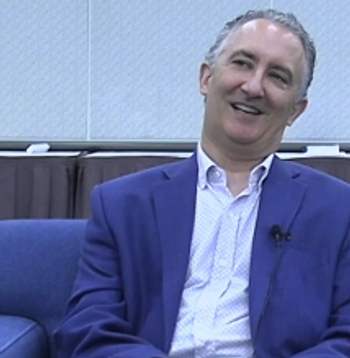
- Psychiatric Times Vol 28 No 12
- Volume 28
- Issue 12
The Debate Over DSM-5: We Invite Your Views
This brief editorial clarifies the position of Psychiatric Times with regard to our intent behind posting the many blogs about DSM-5 that appear on our Web site, www.PsychiatricTimes.com.
This brief editorial clarifies the position of Psychiatric Times with regard to our intent behind posting the many blogs about DSM-5 that appear on our Web site, www.PsychiatricTimes.com.
Psychiatric Times takes no official position regarding any current controversy involving the upcoming publication of the DSM-5. Rather,it is our intent to assist the field and our readership by providing an unbiased, objective forum in which informed and respectful academic debate can take place around issues that are of significant concern in the field of psychiatry.
The publication of DSM-5 will mark one of the most anticipated events in several decades for the mental health field. Despite what appears to be a recent trend of intensified cynicism regarding the infrastructure of the field,1,2 this fact about psychiatry in the early 21st century is clear: the DSM is of central importance to the accuracy and consistency of psychiatric diagnosis and research. In a practical sense, it provides mental health professionals with a common language necessary for treating patients.
Psychiatric Times encourages and invites readers to submit their viewpoints on DSM-5 in the spiritof collegial and scientific investigation. Manuscripts and letters sent to
References:
References
1. Harris G. Talk doesn’t pay, so psychiatry turns instead to drug therapy. The New York Times. March 5, 2011.
2. Angell M. The epidemic of mental illness: Why? (Parts 1 & 2). The New York Review. June 23, 2011.
Articles in this issue
about 14 years ago
In Memoriam: Daniel W. Shuman, JD: A Gift for Collaborationabout 14 years ago
Empty Words in Psychiatric Records: Where Has Clinical Narrative Gone?about 14 years ago
Brother Dogabout 14 years ago
A Synapse Darkly: Psychiatry at a Critical Junctureabout 14 years ago
Sexual Minority Identity Developmentabout 14 years ago
Happy 70th Birthday, Dadabout 14 years ago
Welcome to Our Editorial Board!about 14 years ago
Meditation on Manic-Depressive Illnessabout 14 years ago
Psychiatric Pharmacogenomics: Research DirectionsNewsletter
Receive trusted psychiatric news, expert analysis, and clinical insights — subscribe today to support your practice and your patients.







